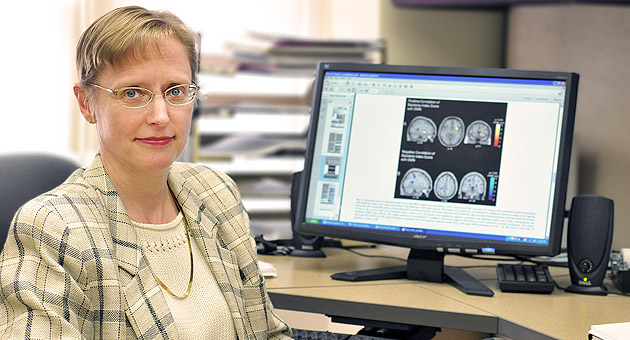A new study of the impact of the First Episode Mood and Anxiety Program (FEMAP) at the London Health Sciences Centre (LHSC) suggests patient-tailored mental health services can provide lasting improvements in symptom management.

The study, from Lawson Health Research Institute and Western University, saw researchers partner with 22 youth receiving care through FEMAP with an aim to better understand personal perspectives on care and treatment outcomes.
FEMAP is an outpatient mental health program through the LHSC started by Dr. Elizabeth Osuch, associate professor at Western University’s Schulich School of Medicine and Dentistry, in 2006. It provides treatment to those between the ages of 16 and 25 who have emotional concerns that fall into the categories of mood and anxiety symptoms.
Participants shared their experiences in the program through open-ended interviews with Osuch’s research team.

Get weekly health news
“Patients actually were significantly better on both symptom measures and functional measures between when they started their treatment with us and the time we interviewed them two years later,” Osuch told 980 CFPL.
“You can have lots of numbers that show that people get better, but that doesn’t give you much insight into why or how they got better, from their perspective. So not only did their numbers get better, but they felt better.”
The research showed that many patients were initially frustrated when they first sought treatment as they hoped for an “easy fix” while many struggled with the decision of whether or not treatment was needed in the first place. Osuch believes that shows a need for targeted campaigns to help emerging adults distinguish between normative feelings and those that would benefit from professional help. She also noted that the responses suggest targeted education campaigns about mental health care are needed, to show that solutions are not necessarily quick or easy.
Osuch is hoping that the results of the study will inform health care delivery models and is also hoping to receive government funding as a health-care model for FEMAP, which is currently funded through research dollars and donations.
“One of the things that people sometimes overlook is that the importance of the process is key in this research finding. You can’t just sort of throw a cookbook approach at people and expect them to respond in the same way. People are different, they need different approaches,” Osuch explained.
“When you use a patient-centred model of care, there is variability in how often a person is seen or what kind of professional that they see, but that is also the most important way that you can get a good result across the board for individual patients.”











Comments